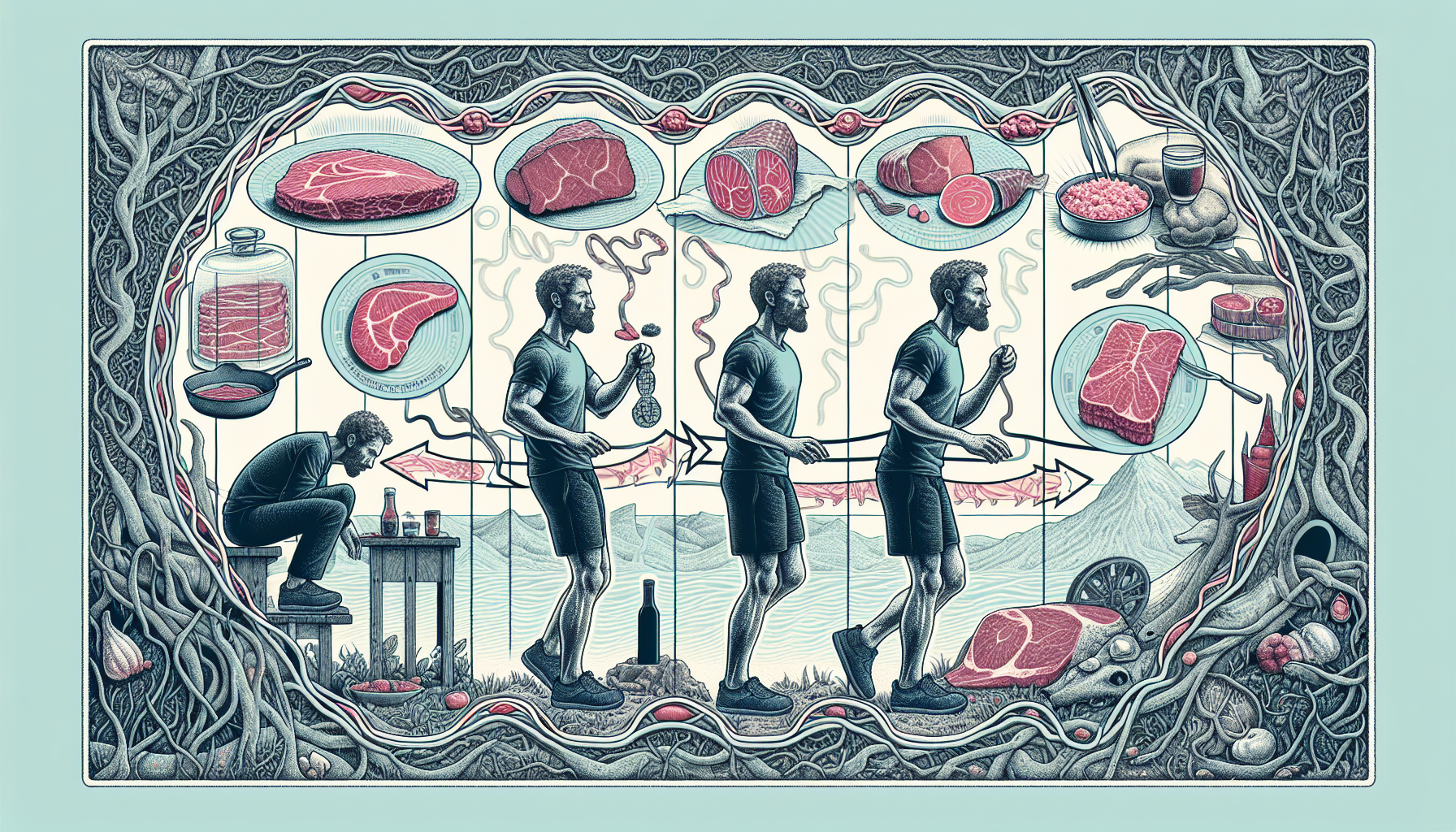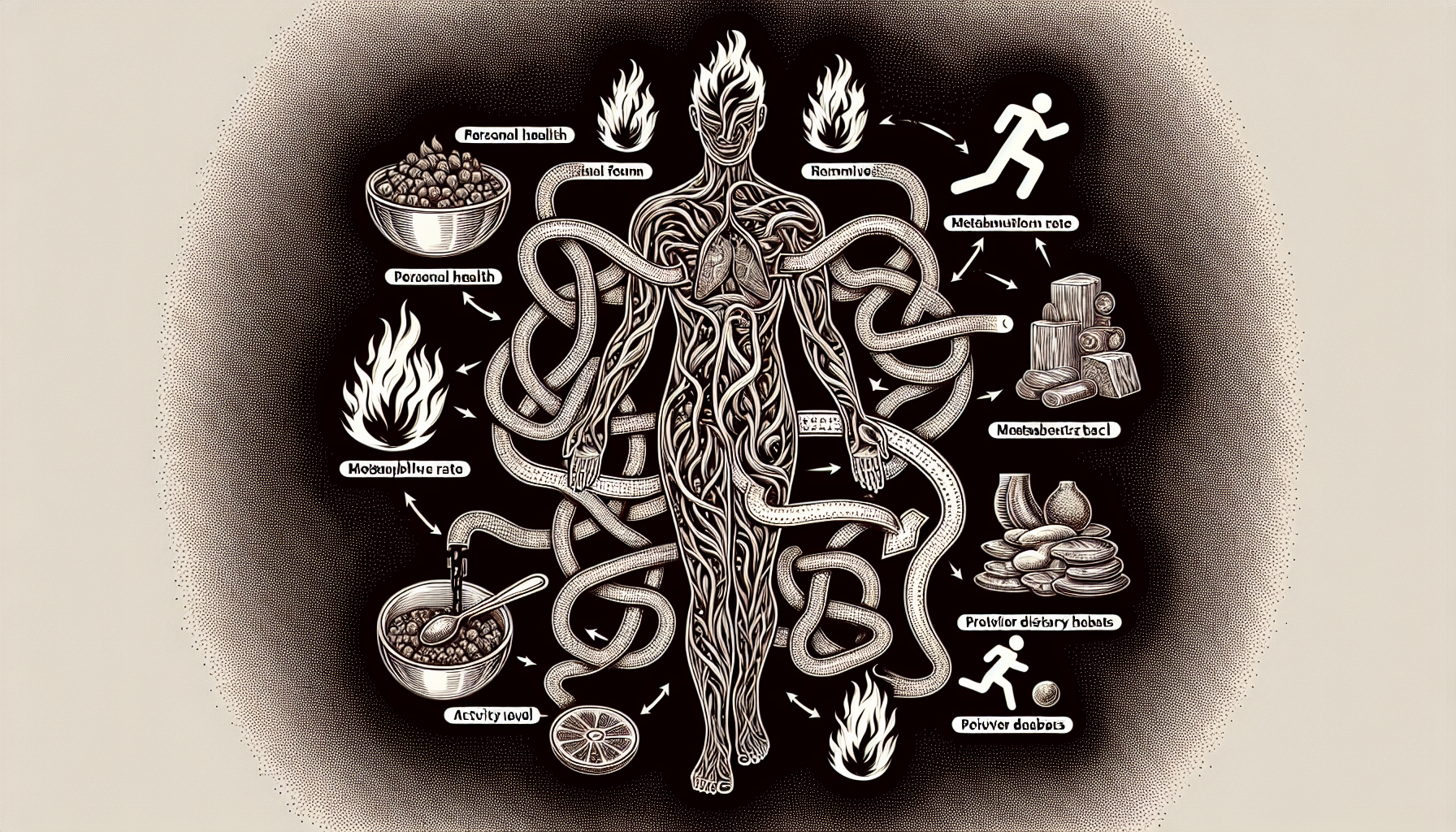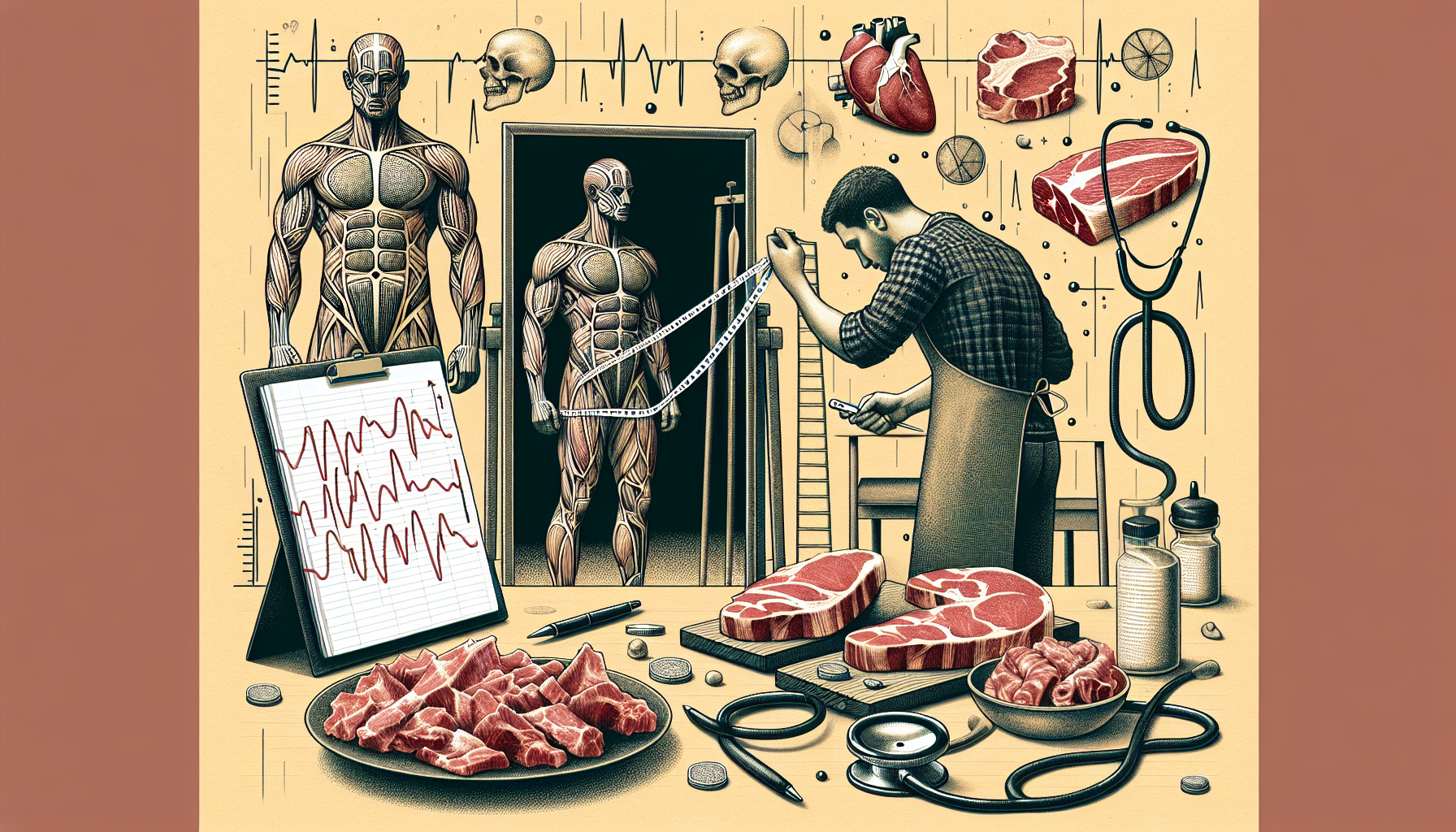How Long Does It Take to See Results on Carnivore? A Realistic Timeline for Diet Success

Embarking on the carnivore diet can leave you eager to witness its effects. You likely want to know “how long does it take to see results on carnivore?” While individual experiences differ, this article will guide you through the typical stages of the carnivore diet, offering insights into what you might expect at each phase without promising instant success or overnight transformations.
Key Takeaways
- The carnivore diet leads to adaptation symptoms like ‘keto flu’ initially, but following weeks to months can bring significant health transformations such as fat loss, muscle gain, and stable energy levels.
- Personal health, metabolic rate, activity level, and previous dietary habits strongly influence the timeline and efficacy of the carnivore diet, with exercise and elimination of processed foods being crucial for optimal results.
- Success on the carnivore diet can be measured not only by weight loss but by overall health improvements, with countless personal success stories reflecting benefits like reduced inflammation, chronic disease management, and emotional well-being.
Understanding the Carnivore Diet Timeline

Embracing the carnivore lifestyle is a journey. It starts with a potentially bumpy initial response and early days, as your body transitions from burning carbs to fats. But patience is key. With time, visible changes start to appear, and the long-term results can be nothing short of amazing.
Think of your carnivore diet journey as a marathon, not a sprint. The finish line is not a certain date on the calendar but the moment you achieve your health goals and experience a true carnivore diet transformation.
The Early Days: Initial Responses and Adaptation
The early days of the carnivore diet can be a wild ride. As your body shifts from using carbs for energy to burning fat, you might experience the dreaded ‘keto flu,’ a common occurrence in the keto diet. Common symptoms include:
- fatigue
- headaches
- nausea
- irritability
These are frequently experienced by individuals. You may also encounter some digestive changes as your body adjusts to the new eating pattern. But don’t worry, these are all part of the process as your body detoxes and adapts to its new fuel source.
Progressing Through Weeks: Visible Changes and Well-being
After a few weeks on the carnivore diet, you’re likely to start noticing some changes. These can include:
- Stabilized energy levels
- Reduced reliance on caffeine and sugary snacks
- Constant stream of energy throughout the day
- Smoother digestion, with less bloating and more comfort after meals
- Physical changes
By the third to sixth week, weight loss and even more radiant skin can become noticeable, while avoiding any unwanted weight gain.
Long-Term Results: What to Expect in Months and Beyond
The most exciting part of the carnivore diet journey is the long-term results. After several months, you can expect:
- Significant fat loss
- Gains in muscle mass, thanks to the high protein intake
- Stabilized blood sugar levels, helping to manage or prevent chronic conditions like type 2 diabetes
The most notable transformations, like fat loss and lean muscle mass gain, tend to occur several months after starting the diet. So, hold on tight and be patient. The results are worth the wait.
Factors Influencing Your Carnivore Diet Results

While the carnivore diet can work wonders, it’s important to remember that everyone’s experience is unique. Several factors can influence your particular journey, including:
- Personal health
- Metabolic rate
- Activity level
- Previous dietary habits
All of these factors can affect the speed and effectiveness of your carnivore diet transformation.
Recognizing these factors can help you tailor the diet to your own needs and get the most out of your carnivore lifestyle when you eat meat.
Personal Health and Metabolic Rate
Your personal health and metabolic rate can significantly influence how efficiently your body responds to the carnivore diet. A high protein intake can improve your metabolic health, crucial for calorie burn and fat utilization. Switching to the carnivore diet also rapidly reduces blood sugar and insulin levels, promoting a metabolic state conducive to weight loss.
However, existing health issues and even sleep quality can affect progress on the carnivore diet. So, it’s crucial to consider these aspects when starting your carnivore diet journey.
Activity Level and Exercise Routine
You’ve probably heard the saying, “Exercise is king. Nutrition is queen. Put them together, and you’ve got a kingdom.” Well, it couldn’t be more true on the carnivore diet. Regular physical activity, particularly strength training, can enhance the diet outcomes by promoting muscle mass growth and elevating metabolic rate.
So, don’t forget to include some exercise in your daily routine for optimal results.
Previous Dietary Habits
Transitioning from a high-carb or processed food diet to the carnivore diet can impact how quickly you see results. It’s normal for initial weight loss to be attributed to water weight loss as the body depletes glycogen stores. But remember, this is just part of the process as your body adjusts to its new fuel source.
Accelerating Your Carnivore Diet Transformation

Ready to speed up your carnivore diet transformation? You can accelerate your progress by optimizing macronutrient ratios, eliminating processed foods completely, and incorporating intermittent fasting.
These strategies can help you achieve your health and weight loss goals faster and more efficiently.
Optimizing Macronutrient Ratios
On the carnivore diet, it’s not just about what you eat, but also how much. Balancing the intake of fats to proteins with a ratio of 1 gram of fat for every 1 gram of protein can aid in effective weight loss and energy levels.
Although the diet may lack certain nutrients like Vitamin C and B vitamins, paying attention to your food choices can ensure that you’re getting all the essential nutrients you need.
Eliminating Processed Foods Completely
Processed foods, especially those containing added sugars and vegetable oils, can cause hormonal issues and slow down your progress on the carnivore diet.
By focusing on nutrient-rich foods and avoiding empty calories, you can consume fewer calories, avoid these potential pitfalls, and support your body’s health and weight loss journey. In fact, choosing foods with fewer calories can make a significant difference in your overall calorie intake, helping you to lose weight.
Incorporating Intermittent Fasting
Intermittent fasting can be a powerful tool to enhance the weight loss effects already present in the carnivore diet. By adjusting your eating schedule, you can amplify health benefits beyond weight loss. However, it’s important to approach intermittent fasting with consideration for your individual health needs and goals.
Common Misconceptions About Losing Weight on Carnivore

Despite its increasing popularity, the carnivore diet is surrounded by several misconceptions, particularly regarding weight loss. From unrealistic expectations of rapid weight loss to misunderstandings about fat stores and water retention, these myths can create confusion and hinder your progress.
Let’s cut through the noise and address these misconceptions head-on.
Myth vs. Reality: Rapid Weight Loss Expectations
One common misconception is that the carnivore diet results in rapid weight loss. While some individuals might experience quick results, these are often based on anecdotal evidence rather than clinical trials. Rapid weight loss might not be sustainable and can even pose health risks.
Realistically, significant weight can be lost in one month on the carnivore diet, but individual results can vary.
The Truth About Fat Stores and Burning Calories
Here’s the deal: when carbohydrates are eliminated, the body shifts from using carbs to burning fats for energy. This adaptation can aid in weight loss.
So, while the carnivore diet doesn’t magically melt away fat stores, it does change the way your body uses energy, which can result in fat loss over time.
The Role of Water Retention in Weight Fluctuations
Water retention can play a significant role in weight fluctuations during the initial transition to the carnivore diet. As your body depletes glycogen stores, you might experience a decrease in water retention and a corresponding rapid weight loss. However, after the initial transition period, actual fat loss becomes the main driver of weight loss.
Tracking and Measuring Your Carnivore Diet Results

Now that you’re well into your carnivore diet journey, how do you keep track of your progress? By incorporating systematic tracking of body composition measurements, maintaining a detailed food log, and setting specific, measurable objectives, you can keep yourself motivated and witness the transformation unfold step by step.
Body Measurements and Weight Tracking
Keeping track of your body measurements and body weight can offer invaluable insights into your progress. Tools like skin calipers, impedance scales, or even a simple tape measure can provide more precise data on body composition changes, including body fat.
Consistently recording these measurements under the same conditions can help you track your progression accurately and motivate you to stick to your carnivore diet journey.
Monitoring Energy Levels and Mental Clarity
Apart from physical changes, the carnivore diet can also bring about improvements in your mental clarity and energy levels. As your body gets used to running on ketones, you might notice an improvement in focus and mental processing.
Regularly assessing these changes can help you understand how the diet is impacting your overall well-being.
Assessing Overall Health Improvements
The carnivore diet is not just about weight loss but also about holistic health improvements. Monitoring changes in the following areas can give you a clearer picture of your overall health progress:
- Inflammation
- Joint swelling
- Pain
- Digestive discomfort
Always remember, it’s not just about the scale but also about how you feel inside.
Real-Life Carnivore Diet Success Stories
The proof of the carnivore diet’s effectiveness lies in the numerous success stories from the carnivore diet community. These inspiring tales are a testament to the improvements in metabolic health, autoimmune conditions, and mental health that the diet can bring about.
From Chronic Conditions to Renewed Vitality
Take Bill, a 72-year-old musician from New York. Bill overcame chronic pain, diabetes, and depression after starting the carnivore diet. Or Sharrell Kline, who noticed significant weight loss and healing in her fingers, indicating recovery from chronic issues.
Stories like these show that the carnivore diet can help individuals overcome chronic conditions and achieve a state of renewed vitality.
Overcoming Sugar Addiction and Achieving Emotional Stability
The carnivore diet’s impact goes beyond the physical. Many individuals report overcoming their sugar addiction and achieving a more stable emotional state. Rus, for instance, reported enhanced mood, strength, and endurance after adopting the carnivore diet.
These stories highlight the diet’s potential to improve not just physical health, but emotional well-being as well.
Summary
Embracing the carnivore diet is an adventure. It comes with its challenges, but it also brings about profound changes. From initial adaptation to long-term results, from debunking myths to celebrating success stories, the carnivore diet journey is a testament to the power of dietary change. So, are you ready to start your carnivore diet journey and join the ranks of those who have found success?
Frequently Asked Questions
What can I expect in the early days of the carnivore diet?
In the early days of the carnivore diet, you can expect to experience symptoms like fatigue, headaches, nausea, and irritability, similar to the 'keto flu.' These are part of the body's adaptation process as it shifts from burning carbs to fats for energy. Embrace this transitional phase as your body adjusts.
How quickly can I see results on the carnivore diet?
You can start seeing visible changes like weight loss within three to six weeks on the carnivore diet, but the most significant transformations, such as fat loss and muscle gain, usually happen several months after starting the diet. Keep at it, and you'll see progress!
What factors can influence my carnivore diet results?
Your personal health, metabolic rate, activity level, and previous dietary habits can significantly impact your carnivore diet results. Be mindful of these factors for a successful outcome.
How can I accelerate my carnivore diet transformation?
To accelerate your carnivore diet transformation, focus on optimizing macronutrient ratios, eliminating processed foods, and incorporating intermittent fasting. These steps will help you see progress more quickly and effectively.
How can I track my progress on the carnivore diet?
Keep a detailed food log, take regular body measurements, and monitor changes in energy levels and mental clarity to track your progress on the carnivore diet. This will help you stay motivated and see the effects of your efforts.
